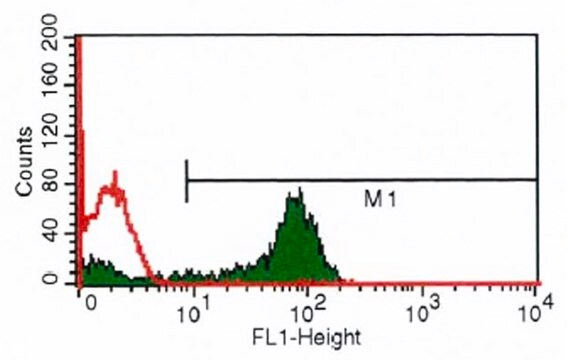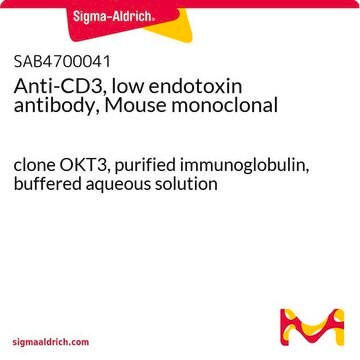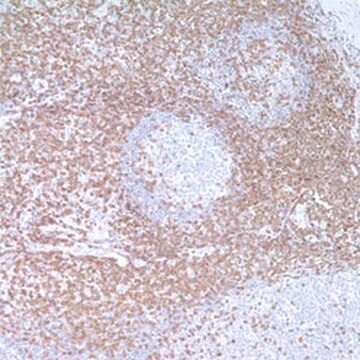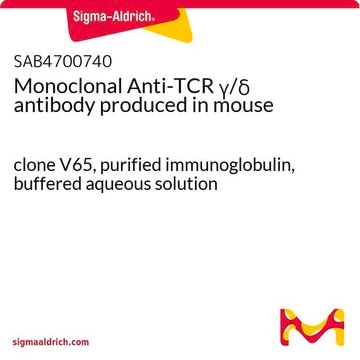C7930
Anti-CD3, T Cell antibody produced in rabbit
whole antiserum
Sinónimos:
Anti-CD3epsilon, Anti-IMD18, Anti-T3E, Anti-TCRE
About This Item
Productos recomendados
biological source
rabbit
Quality Level
conjugate
unconjugated
antibody form
whole antiserum
antibody product type
primary antibodies
clone
polyclonal
mol wt
antigen 20 kDa (bovine and swine)
contains
15 mM sodium azide
species reactivity
rat, canine, mouse, human, Psammomys (sand rat), sheep, feline, pig, chicken, bovine
technique(s)
immunohistochemistry (formalin-fixed, paraffin-embedded sections): 1:200 using enzyme pre-digested, formalin-fixed, paraffin-embedded human tonsil sections
western blot: 1:200 using mouse thymus extract
UniProt accession no.
shipped in
dry ice
storage temp.
−20°C
target post-translational modification
unmodified
Gene Information
human ... CD3E(916)
mouse ... Cd3e(12501)
rat ... Cd3e(315609)
General description
Specificity
Immunogen
Application
- immunoblotting
- immunofluorescence staining
- immunohistochemistry
- immunohistochemical analysis
Biochem/physiol Actions
Disclaimer
¿No encuentra el producto adecuado?
Pruebe nuestro Herramienta de selección de productos.
Storage Class
12 - Non Combustible Liquids
wgk_germany
nwg
flash_point_f
Not applicable
flash_point_c
Not applicable
Certificados de análisis (COA)
Busque Certificados de análisis (COA) introduciendo el número de lote del producto. Los números de lote se encuentran en la etiqueta del producto después de las palabras «Lot» o «Batch»
¿Ya tiene este producto?
Encuentre la documentación para los productos que ha comprado recientemente en la Biblioteca de documentos.
Los clientes también vieron
Nuestro equipo de científicos tiene experiencia en todas las áreas de investigación: Ciencias de la vida, Ciencia de los materiales, Síntesis química, Cromatografía, Analítica y muchas otras.
Póngase en contacto con el Servicio técnico










